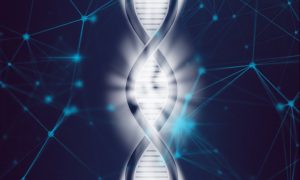
Do a person’s genes determine how long he will live? science responded
 What we mean by life expectancy is the number of years that a group of people born at the same time will manage to live. This expectation is made with a calculation, an arithmetic average of the ages that people in a given group analyzed died.
What we mean by life expectancy is the number of years that a group of people born at the same time will manage to live. This expectation is made with a calculation, an arithmetic average of the ages that people in a given group analyzed died.
The relationship between this life expectancy and the quality of life of a country is great because it is possible to see investments in health. People today are increasingly concerned about the quality of life, consequently increasing their life expectancies.
In several developed countries, the average life expectancy is around 80 years. Since some manage to live longer. The oldest person who ever lived was 122 years old.
Longevity
As inevitable as death is, longevity varies from individual to individual. And there are several places that show you what to do to have a longer and healthier life. But do these “tricks” and tips really work? Or is someone’s longevity already encoded in their DNA?
The question “is longevity primarily determined by genetics?” was made to 11 experts in aging, cell biology and genetics. They had two different interpretations of this question.
First, they did a longevity comparison with something to answer. That’s why they wondered “is the longevity of humans compared to other species primarily determined by genetics?” what if “the longevity of some individual humans compared to other humans is primarily determined by genetics?”
Relationship
Different animals have different lifetimes. And the reason for that is genetics. According to David Gems, an expert professor of aging at University College London, “The question could mean: the upper limits of longevity in humans as a species are determined mainly by genetics, in which case the answer is ‘almost certain.’ For example, the maximum life expectancy of human beings is approximately double that of our closest relatives among the higher primates, such as chimpanzees and gorillas.”
As for lifestyle being more important than genes in humans, most experts agreed with Gems. As much as genetics plays a role in longevity, it is not the main factor.
Anti-aging and cell biology expert and former director of the European Institute of Bioinformatics, Dame Janet Thornton, said that “genetics accounts for less than 30% of the effect, but it’s true that longevity tends to run in families, that is, some families have many elderly people”.
And it can be difficult to determine whether the existence of families with multiple elderly people has to do with genetics or the environment in which they live. Since many times, family members adopt similar diets and lifestyles. And studying the DNA of these people can give researchers more information.
Comments
According to Ken Parkinson, an expert on antiaging and oncology at Queen Mary University London, “many groups are trying to understand this by sequencing the DNA of centenarians and supercentenarians and performing genome-wide analyses.”
The effect that lifestyle has had on longevity is clearly seen when you look at how average life expectancy has increased over the hundreds of years.
Individual human longevity is affected by genetics, but it is not the main factor. Professor Lorna Harries, an expert in genetics and cell biology at the University of Exeter, sums up that “genetics can prepare you for a long life, but you need to do the right things to realize it.”